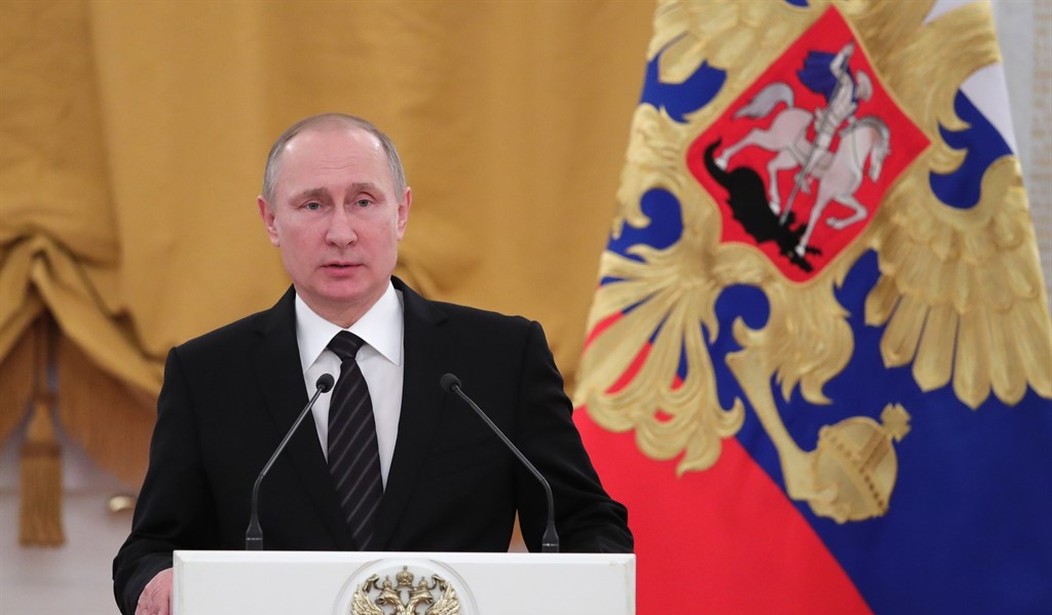25 years ago this week, on December 26, 1991, the Soviet Union collapsed.
Though Cold War has no definitive peace treaty per se, with the Kremlin's Communist empire in fragments everyone knew the great military and economic struggle between the free world and the Communist bloc had ended.
Fortunately the Cold War didn't end with a nuclear bang. North Americans and western Europeans typically reacted with the same mix of relief and pinch-me disbelief that characterized their reactions on November 9, 1989, the day the Berlin Wall cracked. Oh, there were some intellectuals who swore history had ended and liberal democratic free enterprise had defeated all comers. Others noted the brewing conflicts in the Balkans and thought they were about to get a return to ugly history. We could agree that with USSR's demise meant there was less to dread. But what would replace it?
Starting in Fall 1989, former Warsaw Pact nations like Poland and Hungary began gleefully shedding their Communist chains. They were racing west, thank you, and looked forward to eventually joining NATO. Poland had been invaded in 1939 by the USSR's Red Army. In 1939, Soviet dictator Josef Stalin's Red Army invaded Poland, as an ally of Nazi Germany. In 1956 Hungary had revolted against the Soviet occupation. Historian Dr. A. A. Nofi argues that the liberation of Eastern Europe will prove to be the most significant long-term historical impact of the Soviet collapse.
The Baltic nations were looking forward to the USSR's demise. The citizens of the other non-Russian Soviet republics had hated the dictatorship that ruled by fear. However, there were mixed emotions, especially in countries like Ukraine, who had substantial Russian population. No one knew quite what to expect.
Recommended
Russians were confused. They hated Stalinist Communism and its gulags, but the domestic poverty and crime they confronted gave many the impression that freedom was a form of dangerous anarchy.
Russian pride took a heavy blow. Russia, as the USSR's kingpin, had been a world power -- the Kremlin versus Washington. Remembering the German reaction to losing WW1, American and British leaders tried to minimize the damage to Russian national esteem. Check the record: both the George H.W. Bush and Bill Clinton administrations tried to include Russia as a diplomatic partner. But the Russian people knew they had lost a long war.
The Russian Army-- the core of the old Soviet Army-- was a mess but still overmatched the armies of former Warsaw Pact satellites and the ad hoc militaries ex-Soviet Socialist Republics concocted. But Russians had lost their confidence; from their perspective neighbors who once feared them mocked them. So they cheered when Russian forces lingered in Moldova's Transdnistr region, becoming "peacekeepers" protecting ethnic Russians.
Left-behind Russians were (and still are) a problem. So were left-behind nukes, particularly in Ukraine. The Clinton Administration, Ukraine and Britain thought they had solved the problem of ex-Soviet nukes and Ukrainian territorial sovereignty when the Kremlin agreed to the Budapest Accord of 1994. Ukraine would give up its nukes and Russia would respect Ukraine's borders, as is, including the Crimean Peninsula, a region most Russians regard as Russian territory.
However, in February 2014 Russian President Vladimir Putin's modernized Russian Army launched a "stealth invasion" of Crimea and shredded the Budapest Accord. In March 2014, Putin's Kremlin annexed the Crimean Peninsula.
In Europe, armed land grabs followed by annexation have history of inciting huge bloodbaths. The last nation to attempt it was Adolf Hitler's Germany. The war in eastern Ukraine is no blitzkrieg; it's a creeping war of aggression, fought in fits and starts.
There is nothing cold about the war -- it's a simmering war, and it has spawned a simmering arms race. Poland has responded by expanding its military. As a political deterrent, NATO is slowly "forward deploying" U.S. and western European forces.
History is never over. All victories are fleeting.

























Join the conversation as a VIP Member